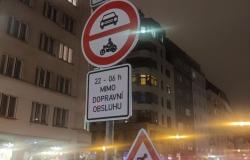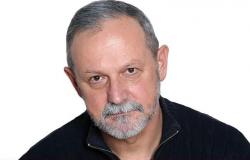
How does the Czech Republic compare to Europe in terms of mobile infrastructure?
We are certainly not far behind her. I would even say that we might even have better coverage of small towns and villages with state-of-the-art technologies like 5G or LTE than, say, Germany. And this despite the fact that in Western Europe they usually appear a little earlier. Things sometimes go slower with us also because of the way orders are entered and managed here.
In what specifically?
Compared to the rest of Europe, there are a large number of suppliers operating in the Czech Republic who only stretch their capacities, which does not bring any advantage to our customers and rather complicates and prolongs the entire construction process. In Europe, it is customary for the infrastructure operator to commission a solution either to a major technology supplier and he hires only a few strong companies for implementation, or the infrastructure operator directly chooses a strong local supplier. For example, in Germany or Switzerland, where we belong to the TOP 3, the operator never hires more than three main suppliers. Here, the situation is different, operators mainly buy hardware from companies such as Huawei, Ericsson or Nokia, they manage the construction themselves and often hire several smaller companies for it.
Doesn’t that go against economies of scale?
Of course it goes. Moreover, it often causes huge swings in demand with this approach. In such a case, it is very difficult to maintain qualified teams of designers, structural engineers, but especially technicians in the field. Technicians work in very demanding conditions day and night. However, there are fewer and fewer qualified workers in telecommunications, many of them leave, for example, for the energy industry.
What kind of qualifications does a person have to have?
They are mostly young people after high school or college who come to us and we train them. It takes about two years. Of course, it worries us all the more if we don’t have enough work for such a person throughout the year. Precisely because orders come in waves, work teams cannot be kept. Some of us are employees, some are self-employed, who sometimes work for several companies at the same time.
What is the reason for the different practice among customers?
I think it’s purely a tradition. We try to have a discussion with customers about the fact that a stronger supplier is not an obstacle for them, but on the contrary, it will bring higher quality, faster fulfillment of deadlines, know-how, financial stability… This will then be reflected not only in the price, but above all in the quality of services. And it doesn’t matter if it is a design activity or an assembly. But it is often a sensitive topic for them.
Are you doing more modernization and expansion, or maintenance?
We do maintenance, but modernization brings the most work. With each arrival of a new generation of mobile network, each location is completely rebuilt. Usually antennas, steel structures are changed, new frequencies are added, radio elements are modernized. Especially with the advent of 5G, it is becoming clear that existing steel structures cannot be loaded indefinitely. That is why they are usually amplified. Above all, older networks are starting to be switched off, which will enable further modernization. Now, for example, the 3G network is being switched off all over Europe. Sometimes there is also a change in the manufacturer of the technology. We call it SWAP networks, which is a complex and very demanding project. We like such projects.
Who is currently leading in Europe?
A substantial part of mobile 5G networks in Europe comes from the Chinese company Huawei. Followed by Ericsson and Nokia.
For example, the National Office for Cyber and Information Security NÚKIB warns against Huawei.
Not only him, for example in Germany warnings are also being sounded. But someone else would hardly be able to build a large network in Europe. No one has such a production capacity. In addition, it can offer exceptional quality and price. I can say for us that their technology is easier to install than from other companies.
At the same time, Ericsson is at the absolute top of European companies when it comes to innovation.
Certainly, Ericsson is an important player in the market. At the same time, in connection with building mobile networks, we encounter the term Open RAN, i.e. open radio network. Its key characteristic is that hardware and software from multiple suppliers will coexist within one network. This solution will lead to a more cost effective, secure, energy efficient network in the future.
What is most relevant to you now?
Clearly, the modernization of 5G networks and the construction of fixed optical networks.
How long does it take for such a modernization to take place across the board, say in the territory of the entire republic?
If the modernization is essential and the supplier of the technology is still changing, it can take, say, two years within the entire republic. Gradual modernization, such as the addition of 5G or, as was the case with LTE, takes from two to four years. From the point of view of the Czech Telecommunications Authority, the operator must cover a specific amount of the population within a certain period of time. This is part of the tender in which it is allocated a frequency. Of course, it goes fastest in big cities, so it usually starts here. Recently, however, the authority has been demanding coverage of a certain percentage in less populated places.
Are you also troubled by the permit procedure?
Yes, this is a key and typical thing for the whole of Europe, but here it is even more complicated and longer. It mainly concerns construction management. Some time ago, a manager from China told me: “It’s hard with you Europeans, everything takes time here. With us, if we need to build a tower, we simply build it and we don’t ask anyone much.” I’m not saying it’s an ideal approach. It’s the opposite extreme. But the difference is too big.
What is critical to success in your field?
In the Czech Republic it is a price. In Europe, a little more attention is paid to quality, compliance with occupational safety, certification… Among other things, this leads to fewer occupational accidents. We know that some companies do not place so much emphasis on the certification and training of their technicians. Our technicians are trained for several weeks. Especially the first days they spend in our training center are very intense. The climbing equipment alone is quite expensive, for example the entire set for one installation team reaches a value of over three thousand euros.
What is the advantage of a Czech company, apart from the price, when doing business abroad?
In telecommunications in Europe, Czechs are perceived as those who can handle themselves. As complete professionals who are available at any time. Let’s say only a few domestic companies operate in Germany, and the rest are from us or from Poland and other Eastern European countries. However, just as we managed to overcome the subjects there, now others from the even more eastern parts of the continent are pressing in on us.
Specifically?
From Hungary, Romania and further south-eastern Europe. They have cheaper labor. That is why we need to offer our customers comprehensive solutions including design activities, engineering, network measurement and maintenance.
Why are you getting into this now?
He’s a gradual process, it’s not like we just started with him. We already offer these services in the Czech Republic. But before, the market was not so open and the competition was not so great. I would even say that we also have to look further to Eastern Europe, because a Czech person is becoming a bit expensive. At the same time, there is one more thing that we understood when acquiring foreign companies. When we come to Germany, for example, we come across a difference in mentality. We try to be fast, push development and production, while the employees there want their well-being. There, the mobile phone is simply switched off after working hours. So we’re not just looking for acquisitions. We are also looking for other interesting projects, such as satellite communication or the construction of private 5G networks. We are creating a completely new department of energy and photovoltaic installation in the B2B sector. In short, we are expanding our reach.
Michal Mrazek
He is the executive director of the companies Suntel Czech and Backbone, belonging to the DRFG group. In the past, he worked at Backbone in the position of technical director. For example, he also worked for Motorola and Huawei as a RAN Product Trainer in the regions of Northern and Eastern Europe. On foreign projects in Scandinavia, he was involved in the configuration of radio networks and the coordination of suppliers within the framework of large swap projects.
Tags: quality mobile networks Czech Republic European level built faster
-




